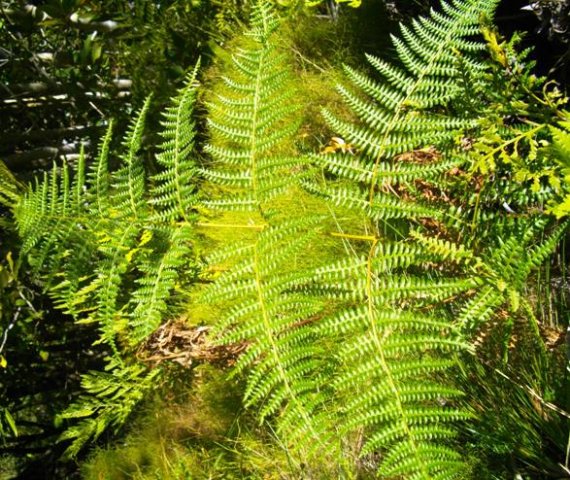Pteridium aquilinum subsp. aquilinum

Author: Ivan Lätti
Photographer: Thabo Maphisa
The common bracken or brackenfern as Pteridium aquilinum subsp. aquilinum is commonly known, is the most abundant fern on earth in our time. The plant has a large number of common names in many languages as it grows in the neighbourhood of many communities in many countries. The resemblance of the frond to an eagle’s wing has been presented as one of the explanations for the choice of the specific name. The plant is a deciduous perennial fern belonging to the family Dennstaedtiaceae.
The South African distribution of the species is in the Western Cape, the Eastern Cape, KwaZulu-Natal and the provinces north of the Vaal River.
The species is adapted to temperate and subtropical conditions in many parts of the world. It is not considered threatened in habitat early in the twenty first century. This fern tends to spread, often invade in especially disturbed land. It is even considered invasive in countries where it is indigenous, such as England. The rhizomes survive fires, resprouting afterwards more vigorously than many competing species. In South Africa research has shown bracken fires to be hotter than adjacent grass fires, increasing mortality in plants such as Protea caffra that normally resprout after fires.
The plant contains carcinogens. In Japan where the young stems are eaten as a vegetable the high incidence of stomach cancer is believed to be related to this practice (Wikipedia; www.riel.cdu.edu.au; http://redlist.sanbi.org).

